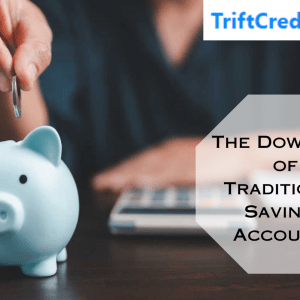How Billionaires Buy Stocks: Investing in the stock market is a multifaceted endeavor that captivates a diverse range of participants, including some of the world’s wealthiest individuals—billionaires.

This comprehensive guide aims to unveil the intricacies of how billionaires buy stocks, exploring their motivations, strategies, and the profound impact their investments can have on the market.
How Billionaires Buy Stocks
Billionaires exert significant influence in the financial landscape, and understanding their approach to stock investments unveils valuable insights for all investors. These financial titans, from Warren Buffett to Elon Musk, employ diverse strategies shaped by their unique backgrounds and philosophies.
This article serves as a compass, demystifying the methods behind billionaire stock purchases and providing both novice and seasoned investors with a deeper understanding.
Why Do Billionaires Invest in Stocks?
Billionaires opt for stock investments for various reasons, aligning with their long-term wealth-building objectives. Diving into their motivations reveals intriguing aspects such as:
- Diversification: Billionaire investors strategically spread their wealth across different assets to minimize risk.
- Long-Term Value Investing: Visionaries like Warren Buffett emphasize the compounding power of long-term stock investments, highlighting the potential for substantial returns over time.
Understanding the Stock Market
Before exploring the specifics of how billionaires buy stocks, it’s crucial to grasp the basics of the stock market. In essence, a stock represents ownership in a company, and the stock market is where these shares are bought and sold. To navigate this complex landscape effectively, familiarize yourself with key terms such as:
- Bull and Bear Markets: Understanding the dynamics of bullish and bearish market conditions.
- Dividends: Exploring how companies share profits with shareholders.
- Market Indices: Recognizing benchmarks that measure the performance of the stock market.
Strategies Used by Billionaires
Billionaires employ a spectrum of strategies in their stock investments, each reflecting their unique approach and risk appetite. Some noteworthy strategies include:
- Long-Term Value Investing: Prioritizing companies with strong fundamentals and sustainable competitive advantages.
- Dynamic and Speculative Strategies: Engaging in more dynamic and speculative approaches to capitalize on short-term market movements.
Research and Analysis
Thorough research is the backbone of successful stock investments, and billionaires leverage advanced tools and resources for comprehensive analysis. Aspiring investors can follow suit by exploring:
- Comprehensive Stock Analysis Websites: Utilizing platforms that provide in-depth financial data and analysis.
- Understanding Financial Statements: Developing the skills to interpret and analyze company financial statements.
- Staying Updated on Market Trends: Embracing a continuous learning mindset to stay ahead in the ever-evolving market.
Challenges and Risks
While billionaires pursue significant financial gains, they also face challenges and risks in the stock market. These challenges include:
- Market Volatility: Navigating the unpredictable nature of market fluctuations.
- Economic Downturns: Adapting to economic downturns that can impact the overall market.
- Global Events: Responding to unexpected global events that influence market dynamics.
Case Studies
Real-life case studies provide tangible examples of how billionaires navigate the stock market. Examining figures like Warren Buffett showcases:
- Patient and Disciplined Approach: Buffett’s patient and disciplined approach, is exemplified through his substantial stake in Berkshire Hathaway.
- Power of a Well-Thought-Out Investment Strategy: Illustrating the effectiveness of a well-thought-out investment strategy over time.
Market Trends Influenced by Billionaires
Billionaire investments send ripples through the market, influencing trends and shaping industry landscapes. Notable examples include:
- Elon Musk’s Impact: When Elon Musk tweets about a particular stock, it often leads to significant market movements.
- Anticipating Shifts: Understanding these dynamics allows investors to anticipate potential shifts and position themselves strategically.
Tips for Aspiring Investors
Practical tips serve as valuable takeaways for investors looking to learn from billionaire strategies. Emphasizing the importance of:
- Education: Continuously educating oneself on market dynamics and investment strategies.
- Diversification: Spreading investments across different assets to mitigate risk.
- Long-Term Perspective: Adopting a long-term perspective for sustained growth.
Conclusion
In conclusion, comprehending how billionaires buy stocks involves dissecting their motivations, strategies, and the broader impact on the market. This guide serves as a comprehensive roadmap, offering a nuanced understanding of the dynamic world of billionaire stock investments. As you embark on your investment journey, remember the lessons learned from these financial titans and adapt them to suit your unique circumstances. Happy investing!
ALSO CHECK:
15 Best Online Trading Platforms in Nigeria
How To Get a Loan Without BVN In Nigeria: Quick Loan Guide
Investing in AI Stocks: A Comprehensive Guide to Unlocking Potential Profits


 In this comprehensive guide, we’ll delve into the nuances of the downsides associated with traditional savings accounts and explore alternative options that offer greater financial efficacy.
In this comprehensive guide, we’ll delve into the nuances of the downsides associated with traditional savings accounts and explore alternative options that offer greater financial efficacy.








 Are you dreaming of Top 10 Car Loan Companies in Nigeria
Are you dreaming of Top 10 Car Loan Companies in Nigeria




